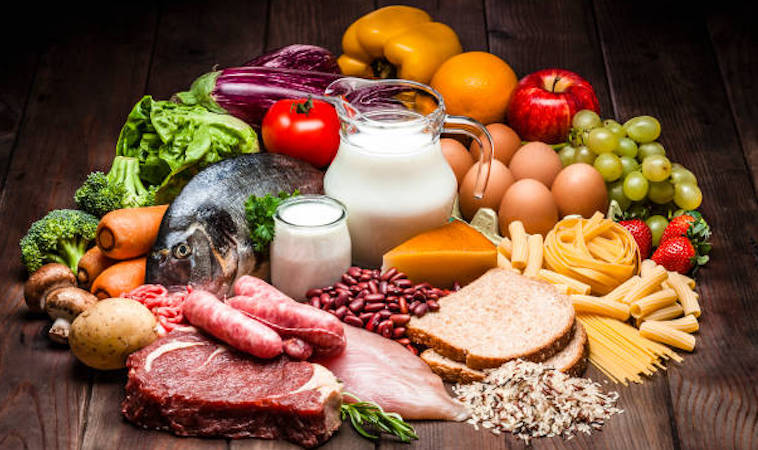Protein is an essential nutrient that plays a crucial role in many bodily functions, including building and repairing tissues, producing enzymes and hormones, and supporting the immune system. Eating a diet rich in protein is important for maintaining good health, especially if you’re physically active or trying to build muscle mass.
Protein Rich Foods for Daily Life
Here’s a guide to some of the best protein-rich foods that you can incorporate into your daily diet:
-
Lean Meats
Lean meats such as chicken, turkey, and lean beef are excellent sources of high-quality protein. They also contain essential amino acids that your body needs to build and repair muscle tissue. When choosing meats, look for cuts that are low in fat and avoid processed meats such as sausages and deli meats, which can be high in salt and preservatives.
-
Fish and Seafood
Fish and seafood are great sources of protein and are also rich in healthy omega-3 fatty acids, which are important for heart health. Some of the best fish for protein include salmon, tuna, and trout. Shellfish such as shrimp, crab, and mussels are also good sources of protein.
-
Eggs
Eggs are one of the most versatile and affordable sources of protein, with one large egg containing around 6 grams of protein. They’re also rich in vitamins and minerals, making them a nutritious addition to any meal. Consider incorporating boiled or scrambled eggs into your breakfast or adding them to salads for a protein boost.
-
Dairy Products
Dairy products such as milk, cheese, and yogurt are excellent sources of protein, as well as calcium and other important nutrients. Greek yogurt, in particular, is a great choice for protein, with one cup containing around 23 grams. When choosing dairy products, opt for low-fat or fat-free options to limit your intake of saturated fat.
-
Legumes and Beans
Legumes and beans such as lentils, chickpeas, and black beans are a great source of plant-based protein. They’re also high in fiber, which can help you feel fuller for longer. Legumes and beans can be added to salads, soups, and stews, or used as a substitute for meat in dishes such as chili and tacos.
-
Nuts and Seeds
Nuts and seeds such as almonds, peanuts, and chia seeds are a great source of protein, healthy fats, and other important nutrients. They’re also a convenient snack that you can take with you on the go. Consider adding nuts and seeds to your breakfast cereal or smoothies for an extra protein boost.
Benefits of Protein-Rich Foods
Protein-rich foods offer a range of health benefits, including:
Building and Repairing Muscle Tissue: Protein is essential for building and repairing muscle tissue, making it important for athletes and anyone trying to build muscle mass.
Supporting Weight Loss: Protein can help you feel fuller for longer, reducing the likelihood of overeating and supporting weight loss efforts.
Boosting Energy: Protein can help boost energy levels, making it easier to power through workouts and daily activities.
Supporting Immune Function: Protein is important for supporting immune function, helping to keep you healthy and prevent illness.
Supporting Bone Health: Some studies have suggested that protein may be important for maintaining bone health, reducing the risk of osteoporosis.
Potential Risks and Considerations
While protein-rich foods offer a range of health benefits, it’s important to be mindful of potential risks and considerations, such as:
Kidney Health: Eating a high-protein diet may put additional strain on the kidneys, particularly for those with pre-existing kidney disease. If you have kidney disease or are at risk for it, speak to your doctor about appropriate protein intake.
Cholesterol and Saturated Fat: Some protein-rich foods, particularly red meat and full-fat dairy products, can be high in cholesterol and saturated fat, which can increase your risk of heart disease. Choosing leaner meats and low-fat or fat-free dairy products can help limit your intake of these harmful nutrients.
Plant-Based Proteins: While plant-based proteins are a great source of protein, they may not contain all of the essential amino acids that your body needs. Eating a variety of plant-based proteins, such as legumes, nuts, and grains, can help ensure that you’re getting all of the essential amino acids.
Protein Supplements: While protein supplements can be a convenient way to boost your protein intake, they should not be relied on as the sole source of protein in your diet. Additionally, some protein supplements may be high in added sugars and other harmful additives, so it’s important to choose high-quality, minimally processed options.
Final Thoughts
Protein-rich foods are an important part of a healthy, balanced diet. By incorporating a variety of lean meats, fish and seafood, eggs, dairy products, legumes and beans, and nuts and seeds into your meals and snacks, you can help support your overall health and wellness. However, it’s important to be mindful of potential risks and considerations, such as kidney health, cholesterol and saturated fat, plant-based proteins, and protein supplements.


